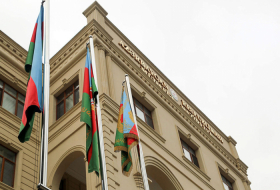Turkish President Recep Tayyip Erdogan’s media office and the country’s defense ministry told journalists they’re quitting WhatsApp Inc., joining a global flight from the popular messaging app over new usage terms that have sparked privacy concerns.
The presidency will move its WhatsApp groups to encrypted messaging app BiP, a unit of Turkcell Iletisim Hizmetleri AS, on Jan. 11, it said in messages to the groups. The Defense Ministry followed suit on Sunday. The switch coincides with Erdogan’s broader campaign against social-media platforms that activists say is meant to stifle dissent.
Changes to WhatsApp’s terms and services effective Feb. 8 will allow it to share data with parent company Facebook Inc. Users must agree to the new terms, which would allow for more targeted advertisements, or lose access to their accounts at WhatsApp.
The push to monetize WhatsApp more heavily has come at a time when Facebook’s revenue growth is near a record low. While messaging has jumped more than 50% in many of the countries hit hardest by the coronavirus, according to the company, those increases haven’t translated into more advertising dollars because the popular services aren’t platforms where Facebook has a robust ad business.
With WhatsApp’s data protection about to weaken, the world’s richest man, technology entrepreneur Elon Musk, has issued a call to switch from WhatsApp to encrypted rival Signal, leading to a surge in new users of that service.
Turkcell reported a similar pattern in Turkey, with about 1 million new users joining BiP Messenger in the past 24 hours, according to a company statement on Sunday. The application has been downloaded more than 53 million times since it was launched in 2013, Turkcell said.
Erdogan’s office, in its statement, urged journalists to switch to BiP. The Turkey Wealth Fund took a majority stake in Turkcell, the country’s biggest mobile phone operator, in 2020.
Erdogan’s jettisoning of WhatsApp is his latest move against social-media giants, which Turkey recently fined for not appointing local representatives as required by a new law. Activists who accuse him of increasingly authoritarian ways say the required appointments are part of a broader effort to gain more control over the platforms, with Turkey threatening to render them unsuable domestically if they don’t comply.
Turkish authorities regularly arrest social-media users on charges including insulting Erdogan, and banned Wikipedia for three years until a court ruled a year ago that the restriction violated free speech. Access to Twitter Inc. has been hampered.
Chinese-owned TikTok, which was among the companies including Facebook that were fined, agreed last week to appoint a local representative.
The Bloomberg
More about: WhatsApp
















































